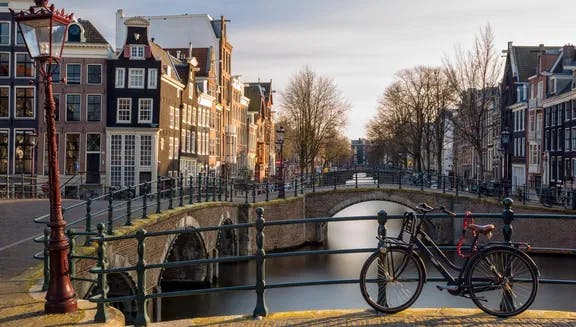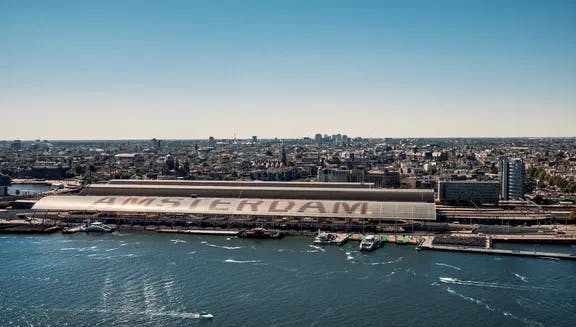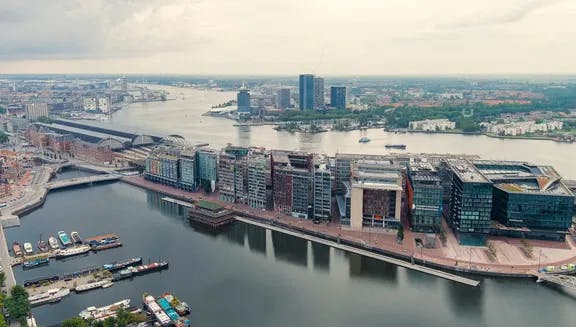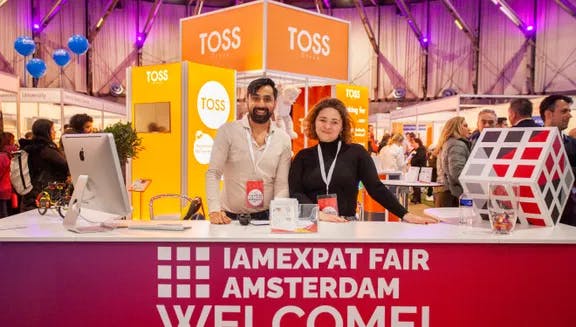
What’s changing in the Netherlands in 2023
Tax and finances
There will be a number of changes to income and other taxes in 2023. The income limit for the second tax band goes up from €69,398 to €73,031 and the tax rate for this band is lowered from 37.07% to 36.93%.
The working tax credit will be increased annually for people with an income of up to €115,301 a year. The exact amount of the credit depends on age and income. Savings of up to €57,000 per person (€114,000 for a couple) will not be taxed.
If you work for an innovative startup and own 5% or more of the company’s shares, the exemption to the customary wage scheme no longer applies to you. This exemption would have previously allowed you to claim the statutory minimum wage as a taxable wage. The normal rules of the scheme will apply after a transition period lasting until 1 January 2025.
Entrepreneurs with a private limited company or public limited company will pay more corporate income tax. The upper limit for the lowest rate of corporate income tax is reduced from €395,000 to €200,000 and the tax rate goes up from 15% to 19%. The rate for the second bracket remains unchanged at 25.8%.
The tax deduction for freelancers is cut from €6,310 to €5,030.
Find out more about types of taxes in the Netherlands and other changes that will affect freelancers in 2023.
The 30% ruling
The 30% ruling is a tax advantage for highly skilled migrants moving to the Netherlands for a specific employment role. When the necessary conditions are met, the employer can grant a tax-free allowance equivalent to 30% of the gross salary subject to Dutch payroll tax. From 1 January 2023, you can no longer switch between the 30% ruling and compensation for your actual extraterritorial expenses during the year. You must make a choice between these two options for the whole calendar year. For 2024, the government has also proposed to cap the maximum benefit – this will affect high earning employees. Find out more about the 30% ruling.
Other tax changes
- The tax-free home working allowance will rise to €2.15 per day. This is a voluntary benefit and employers are not required to pay it.
- The reduced rate of VAT on fuel from 21% to 9%, which was originally in place until 1 January 2023, will now be extended until 1 July 2023.
- The purchase and installation costs of solar panels will be exempt from VAT.
- The tax-free travel allowance (reiskostenvergoeding) will increase from €0.19 to €0.21 per kilometre.
- The tax on flights from a Dutch airport will go up from €7.95 to €26.43 per passenger.
Residence permits and immigration
The Dutch Immigration and Naturalisation service (IND) adjusts its fees for applications for residency in the Netherlands annually and 1 January 2023 saw bigger changes than usual. The IND has equalised the large differences in fees for certain permits and made the cost of permanent residence permits more affordable. The cost of applying for a permit for work on a self-employed basis, for example, has been reduced from €1,446 last year to €350 for 2023. Find more information about the new IND fees.
The required amounts people must earn to sponsor someone to come to the Netherlands from abroad are adjusted twice every year on 1 January and 1 July. More detail on the required income levels in 2023.
Income and benefits
The Dutch government has taken several measures to support households in the face of the cost-of-living crisis. The minimum wage, pensions and welfare benefits will all increase by more than the standard increase. Universal child benefits will rise to between €269.76 and €385.37 per quarter (depending on the age of the child), while means-tested childcare benefits will also rise.
Government grants for organised childcare are increased to a maximum of €9.12 per hour for daycare, €7.85 for after-school care and €6.85 for childminders.
Means-tested benefits for rent and healthcare also increase, and the maximum income level is raised, meaning more households will be eligible to receive then. The presence of children up to the age of 27 in the family home will no longer affect their parents’ benefits. Find out more about government benefits and allowances (in Dutch).
Around 500,000 low-income households living in a housing association property will get a rent reduction averaging €57 per month from 1 July 2023.
Help with energy costs
A price cap on energy will apply to households and other small consumers such as the self-employed and small businesses and associations in 2023. All small consumers will pay a maximum price up to a certain level for their energy and gas consumption. The price cap applies up to the average consumption per household, which is 1,200 m3 of gas and 2,400 kWH of electricity. This will save an average household €2,280 per year in costs.
Low-income households will again be entitled to an energy allowance of €1,300.
City of Amsterdam
2023 also brings a range of changes to municipal regulations affecting people living in the City of Amsterdam. Healthcare workers, teachers and police officers will get priority for rental housing, while those over 65 will get priority for properties up to 70m² with a medium-priced rent (up to €1069). New measures were also introduced in December 2022 to combat the housing shortage. A rental property that is fit for habitation cannot remain vacant for more than two months. Owners must report vacancies and can be fined up to €9,000 if they fail to do so. Anyone buying a home valued at under €533,000 must live there themselves and may not rent out the property for four years.
Support for Amsterdammers on a low income is being extended. The maximum income limit is going up from 120% to 130% of the legal social minimum, meaning more people will be eligible for schemes such as the City Pass, school allowance and free or subsidised public transport. Low-income households will receive an energy allowance of €800, a part of this was already paid out in November 2022.
Municipal tax rates including property tax, water taxes, the waste collection levy and boating taxes all rise in 2023. The fees charged for municipal services such as issuing permits or passports are also changing. In most cases these will increase. There are some exceptions to this, such as the cost of building permits, which will be lowered. Find out more about what’s changing in the City of Amsterdam.
Find out more
You can find more detailed information on the various changes that came into effect in 2023 on business.gov.nl and the Dutch Government website (in Dutch).
For regular updates on news and events of interest to the international community in the Amsterdam Area, sign up for our monthly newsletter for internationals. We also have a bi-monthly corporate newsletter focusing on news and updates for international companies, employers and recruiters.
Related articles

Changes in rules and regulations in the Netherlands for 2024

Amsterdam’s international community in numbers

New Migration Monitor with interactive dashboard

RNI Registrations available again at IN Amsterdam

Easing into life in the Netherlands: the IamExpat Fair

IN Amsterdam celebrates 15 years of service for internationals

Announcing IN Amsterdam’s new online tool for appointments

Changes to Dutch regulations in summer 2023

What’s changing in the Netherlands in summer 2024
